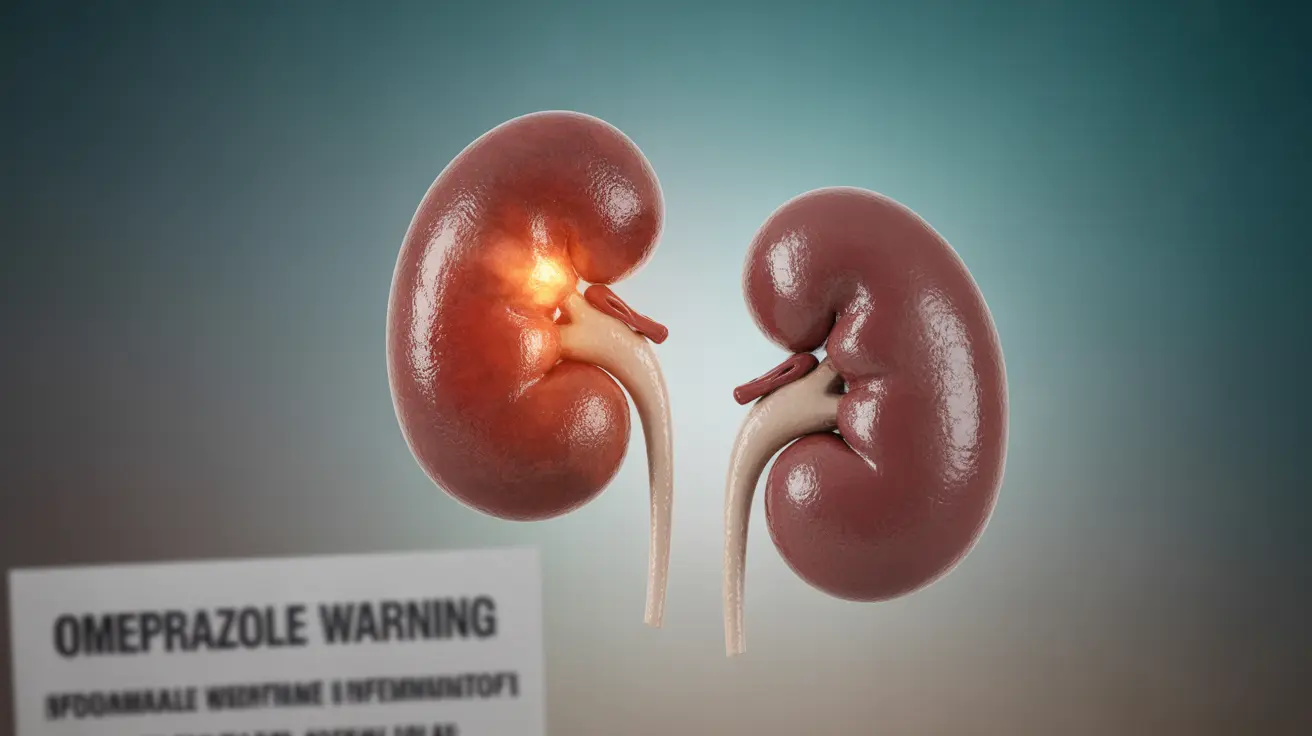If you're taking omeprazole for acid reflux or other digestive issues, you may have concerns about its potential effects on kidney health. Understanding the relationship between omeprazole use and kidney damage, particularly whether such damage can be reversed, is crucial for making informed decisions about your health care.
This comprehensive guide explores the connection between omeprazole and kidney function, focusing on reversibility, warning signs, and important precautions for those with existing kidney concerns.
Understanding Omeprazole and Its Effects on Kidneys
Omeprazole belongs to a class of medications called proton pump inhibitors (PPIs), which work by reducing stomach acid production. While generally considered safe for short-term use, research has identified potential risks to kidney health with prolonged use.
Types of Kidney Damage Associated with Omeprazole
Acute Kidney Injury
Acute kidney injury from omeprazole typically develops suddenly and may be reversible if caught early and properly treated. This type of damage often occurs through an inflammatory response called acute interstitial nephritis.
Chronic Kidney Disease
Long-term omeprazole use has been associated with a gradual decline in kidney function, potentially leading to chronic kidney disease. This form of damage typically develops more slowly and may be less reversible.
Early Warning Signs of Kidney Problems
Recognizing early signs of kidney damage is crucial for preventing permanent injury. Common symptoms include:
- Changes in urination patterns
- Unexplained fatigue
- Swelling in feet or ankles
- Nausea or vomiting
- Confusion or difficulty concentrating
Recovery and Reversibility Factors
The potential for kidney function recovery after omeprazole-related damage depends on several factors:
- Duration of medication use
- Severity of kidney damage
- Promptness of intervention
- Overall health status
- Pre-existing kidney conditions
Safe Usage Guidelines and Prevention
To minimize kidney risks while taking omeprazole, consider these important measures:
- Regular kidney function monitoring
- Using the lowest effective dose
- Following prescribed duration guidelines
- Staying well-hydrated
- Reporting concerning symptoms promptly
Frequently Asked Questions
Is kidney damage caused by omeprazole reversible once the medication is stopped?
Kidney damage from omeprazole may be reversible, particularly if caught early. Acute kidney injury often improves after discontinuing the medication, while chronic damage may be less reversible but can potentially be stabilized with proper medical intervention.
What are the early signs and symptoms of omeprazole-related kidney injury?
Early signs include changes in urination frequency or color, unexplained fatigue, swelling in extremities, and nausea. Some patients may also experience decreased appetite or unusual muscle cramps.
How long does it take for kidney function to recover after acute kidney injury from omeprazole?
Recovery time varies significantly among individuals, typically ranging from several weeks to months. The timeline depends on the extent of damage and how quickly the medication was discontinued after symptoms appeared.
Can long-term use of omeprazole lead to permanent chronic kidney disease?
Yes, extended omeprazole use has been associated with an increased risk of chronic kidney disease. Regular monitoring and working closely with healthcare providers can help identify and address concerns before permanent damage occurs.
What precautions should patients with kidney problems take when using omeprazole or other proton pump inhibitors?
Patients with existing kidney issues should have regular kidney function tests, maintain open communication with their healthcare provider, use the lowest effective dose possible, and report any new symptoms immediately. Alternative acid-reducing medications may be considered when appropriate.




